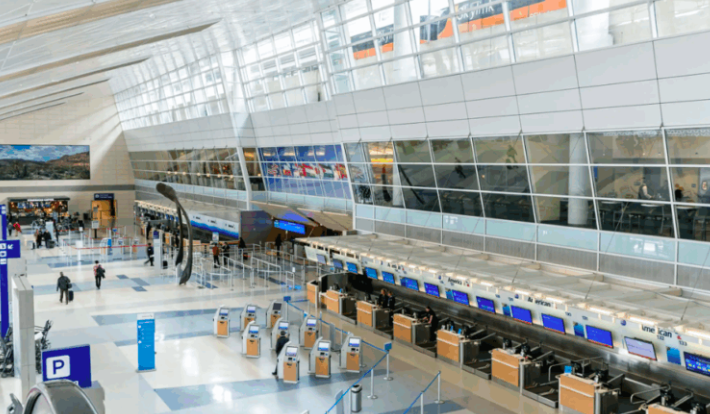A prominent Southern Baptist pastor says he was denied access to an airport chapel at Dallas-Fort Worth International Airport (DFW) after Muslim worshippers blocked the entrance and insisted he could only enter under their conditions. The incident has sparked a wave of outrage over religious discrimination and the erosion of Christian rights in public spaces.
Tom Ascol, president of Founders Ministries and a widely respected voice among Southern Baptists, was traveling through DFW following the sudden death of fellow pastor and scholar Voddie Baucham, who passed away at age 56 after a medical emergency. Ascol explained that his heart was heavy with grief and that he sought solace in the airport’s Meadows Chapel, a space publicly described as open to all travelers.
According to Ascol, he was drawn to the chapel after an airport announcement invited passengers to attend a prayer service, explicitly using the words “all are welcome.” Expecting a time of Scripture reading or quiet reflection, he instead encountered a group of Muslims conducting an imam-led salah service.
“As I attempted to enter, I was stopped,” Ascol later wrote on X, formerly Twitter. “They blocked my way in the inner room. A man who had offered a loud prayer said I could come in if I took my shoes off. I refused. He would not let me walk in. I did not want to create a scene so I left.”
Ascol also posted a photograph showing prayer rugs covering the floor of the chapel, confirming that it had been transformed into a space resembling a mosque during that time. The pastor emphasized that he was not opposed to Muslims using the chapel but objected to being excluded from a public facility dedicated to all faiths.
The irony of the situation struck many observers. The chapel itself was dedicated to honor the service and sacrifice of American military members—men and women who fought to defend freedoms, including freedom of religion. Yet a Christian pastor was denied access to a place intended for all.
Social media lit up with reactions to Ascol’s testimony. “Denied access to a chapel built in honor of our American military men and women!? This needs to be looked into,” one commenter wrote. Another lamented, “Welcome to America, where we promote the Islam faith over all else in the name of inclusion.”
The controversy has also drawn the attention of prominent leaders. Conservative commentator Todd Starnes called the denial of entry a “clear case of Christian discrimination,” tagging Texas officials including Senator Ted Cruz, Governor Greg Abbott, and Attorney General Ken Paxton to demand answers. “Could someone explain why Christians are not permitted inside the ‘All Are Welcome’ Chapel at DFW?” Starnes asked publicly.
Airport officials have yet to release a formal statement explaining why one religious group was permitted to control access to the chapel, effectively excluding others. This silence has fueled further criticism that Christian worship and presence in public life are being steadily marginalized.
Many Christians see the incident as symptomatic of a larger trend: policies enacted under the banner of “inclusion” increasingly mean elevating other faiths or ideologies above Christianity, rather than ensuring fair and equal treatment for all. If chapels in major airports are effectively functioning as mosques during certain hours, critics argue, then Christians and others are being relegated to second-class status in spaces originally designed for interfaith use.
Ascol himself has been careful in his remarks, noting that he did not wish to create conflict during the episode. His choice to leave quietly rather than escalate reflects his pastoral instincts. Yet his decision to share the story publicly highlights the seriousness of the issue, particularly given that dozens of others on social media claimed to have experienced similar barriers at different airports.
The implications extend far beyond one pastor’s personal experience. If Christians are denied entry into publicly accessible chapels—spaces advertised as open to all—this sets a troubling precedent for the role of faith in public institutions. At a time when America’s moral and spiritual fabric is already fraying, many believers argue that the public square should not become yet another arena where Christian voices are silenced.
This incident also underscores the profound need for vigilance regarding religious liberty. The men and women honored by the DFW chapel gave their lives to secure freedoms that must not be selectively applied. Allowing one group to monopolize such a space, while excluding another, undermines the very principle of equal protection under the law.
Christians across the nation will be watching closely to see how Texas leaders respond. For many, this moment represents more than just one pastor’s inconvenience—it is about whether America will continue to defend the rights of Christians to worship freely in the land their faith helped build.

